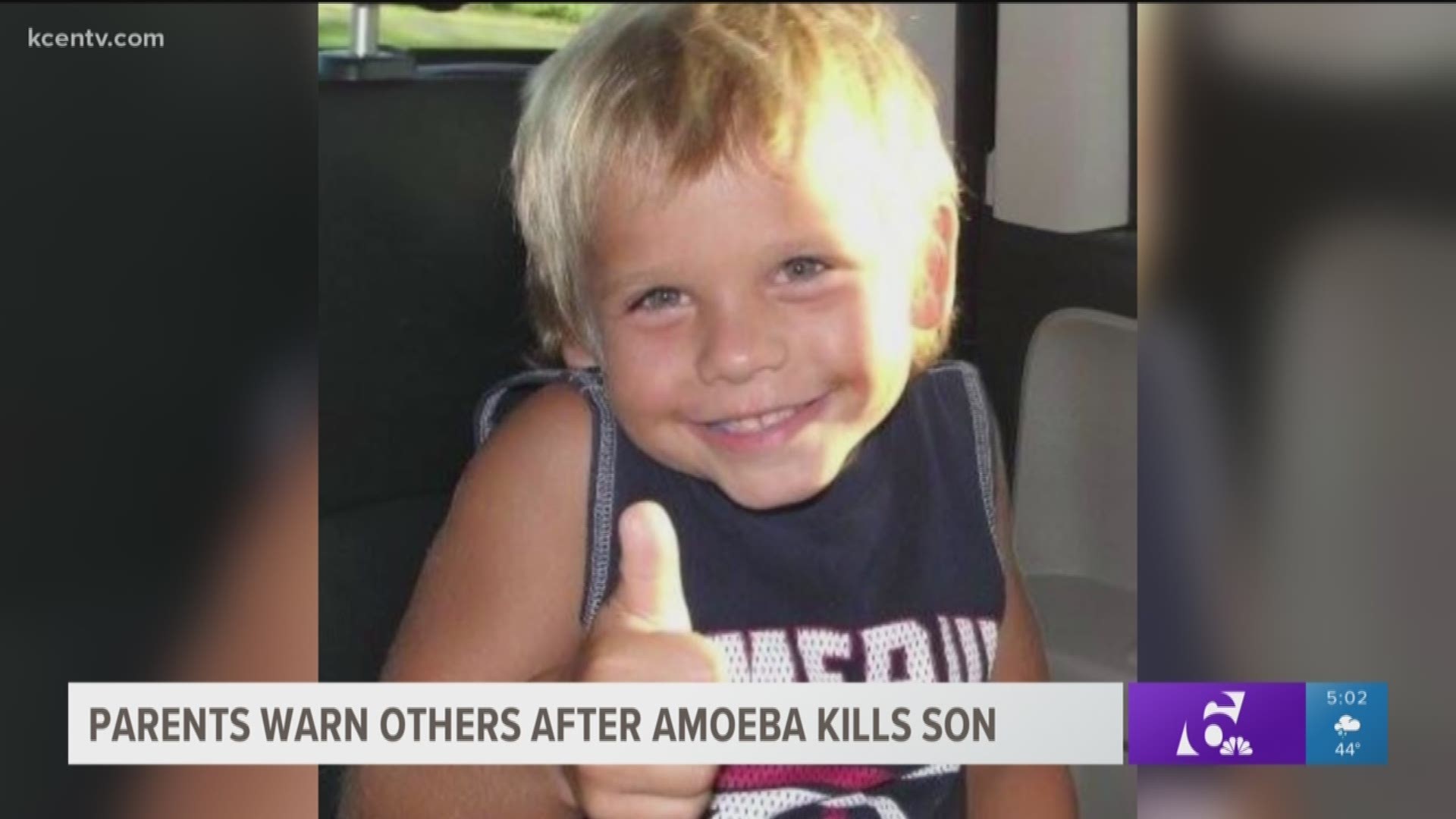WACO, Texas — Two Texas parents who lost their 7-year-old son to a brain-eating amoeba are sending a message to Central Texas families after local health officials confirmed on Friday that a New Jersey man who died of the infection. The surfer was likely was exposed to it while visiting the BSR Cable Park and Surf Resort in Waco, officials said.
Jeremy and Julie Lewis of Mansfield said they feel brain-eating amoeba are not as rare as many people assume.
They started the Kyle Lewis Amoeba Awareness Foundation to teach and educate people about brain-eating amoeba.
RELATED:
In the summer of 2010, their family visited Lake Granbury and the Paluxy River in northern Texas. A few days later, they said their son Kyle started complaining about a headache and became nauseous. Kyle started having seizure-like symptoms and screaming episodes, the Lewis' said. He died shortly afterward.
Hours after his death doctors found the amoeba in his spinal fluid.
According to the Centers for Disease Control and Prevention, brain-eating amoeba infects people when water containing the amoeba enters the body through the nose after swimming or diving in warm freshwater places, like lakes and rivers.
“There are steps that people could be doing,” Jeremy Lewis said. “But they are just not done. Every news report that comes out says it’s this incredibly rare thing that doesn’t kill that many people per year, but when you are talking about something that happens on average one to six or seven times a year, there is nothing else in this world that’s 99 percent fatal.”
Jeremy Lewis said they fought to get the drug Miltefosine into 21 hospitals in the United States. The drug gives victims a chance if the amoeba is diagnosed quickly.
“To our knowledge, that’s never happened in the U.S. before, where a nonprofit organization was so instrumental in getting a drug into hospitals, but we have and we saved a life,” Lewis said.
The McLennan County Public Health District said that the Surf Park, Lazy River, and the Royal Flush Slide tested positive for conditions that were favorable to the growth of the amoeba.
The cable park is where amoeba conditions were found. Health officials said that is a natural body of water and can't be treated and will remain open to the public.

